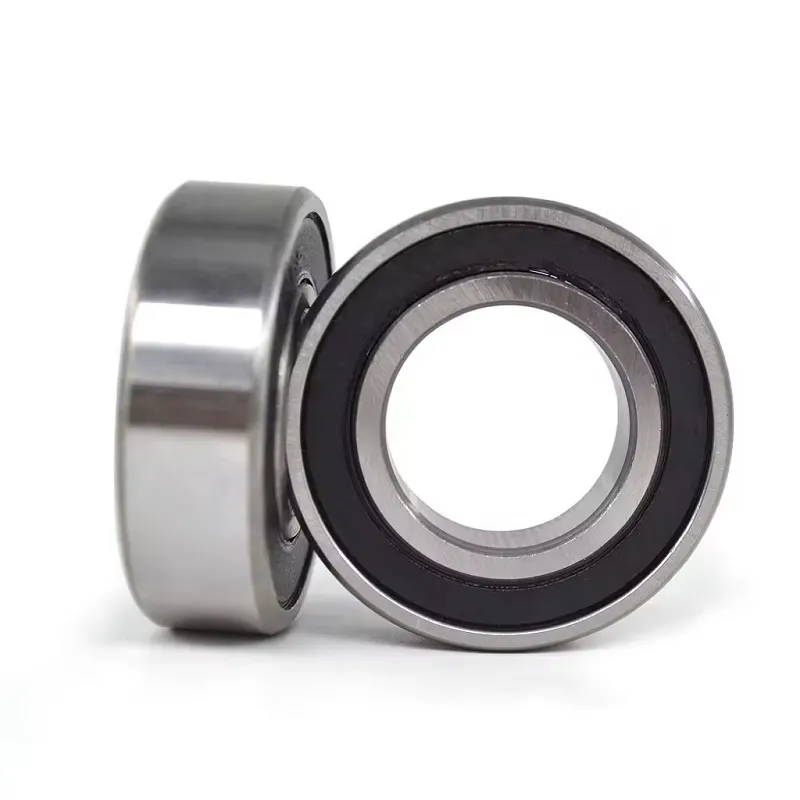Nov . 13, 2024 00:59 Back to list
custom specialty bearings
Custom Specialty Bearings Enhancing Performance Across Industries
In the realm of engineering and manufacturing, bearings play a crucial role in the functionality and efficiency of machinery. While standard bearings meet the needs of numerous applications, the demand for custom specialty bearings has risen dramatically in recent years. These tailored components offer unique solutions that address specific operational challenges across various industries, enhancing performance, reliability, and longevity.
Understanding Specialty Bearings
Specialty bearings, unlike their standard counterparts, are engineered to meet the distinctive requirements of particular applications. They can be designed for specific load capacities, environmental conditions, and operational speeds, making them ideal for industries ranging from aerospace and automotive to medical devices and robotics. The customization process involves close collaboration between manufacturers and clients to ensure that the bearings meet precise specifications, including size, material, and design features.
Why Opt for Custom Specialty Bearings?
1. Specific Application Needs Many industries encounter unique challenges that cannot be resolved with off-the-shelf bearings. For instance, in the aerospace sector, components must endure extreme temperatures, pressures, and vibrations. Custom bearings can be designed to withstand these conditions, ensuring the safety and performance of aircraft components.
2. Enhanced Performance Custom bearings can be optimized for specific load and speed requirements, allowing equipment to operate more efficiently. For example, high-performance electric motors may require specialized bearings that minimize friction and heat generation, ultimately improving energy efficiency and extending the life of the motor.
3. Material Optimization The choice of materials can significantly influence a bearing's performance, especially in harsh environments. Custom specialty bearings can be fabricated from advanced materials like ceramics, composites, or corrosion-resistant alloys, tailored to handle specific challenges such as high humidity, extreme temperatures, or exposure to chemicals.
4. Space Constraints In industries such as robotics or medical devices, space is often at a premium. Custom bearings can be designed to fit within tight spaces while still meeting operational requirements. This ability to create compact, efficient designs leads to improved overall product design and functionality.
custom specialty bearings

5. Cost-Effectiveness While custom bearings may have a higher initial cost compared to standard options, their long-term benefits often outweigh the expense. Enhanced durability and efficiency can reduce the frequency of replacements and lower maintenance costs, leading to significant savings over time.
Applications of Custom Specialty Bearings
1. Aerospace Aerospace applications demand the utmost precision and reliability. Custom bearings used in engine assemblies, landing gear, and control systems are designed to meet rigorous safety and performance standards, ensuring aircraft operate safely under various conditions.
2. Automotive The automotive industry continually seeks innovations to improve performance and fuel efficiency. Custom bearings in electric and hybrid vehicles, for instance, are designed for lighter weight and lower resistance, contributing to better energy management.
3. Medical Devices From surgical instruments to imaging equipment, the medical field relies on precision-engineered components. Custom specialty bearings help ensure smooth operation and reliability in devices that are critical to patient care.
4. Robotics Custom bearings are essential in robotic applications, where precision and movement efficiency are crucial. Bearings that can handle high-speed rotations or varying loads are vital for ensuring robotic systems perform reliably and effectively.
Conclusion
Custom specialty bearings are revolutionizing the way industries approach mechanical design by offering solutions tailored to specific engineering challenges. With the ability to enhance performance, improve reliability, and fit within unique specifications, these bearings play a critical role in advancing technology across various sectors. As industries continue to evolve and demand more specialized solutions, the importance of custom specialty bearings will undoubtedly grow, driving innovation and efficiency in machinery and equipment worldwide. Investing in these precision-engineered components is not just about meeting today’s demands but also about preparing for tomorrow’s challenges in an ever-evolving industrial landscape.
Latest news
-
25MM 2 BOLT UCFLX05-14 Flange bearing unit( oval)
NewsMar.07,2025
-
4 bolt UCF 200 series Pillow block bearings
NewsMar.07,2025
-
25MM 2 BOLT UCFLX05-14 Flange bearing unit( oval)
NewsMar.07,2025
-
UCF216-50 4-Bolt Flange Housing Square Bearing
NewsMar.07,2025
-
25MM 2 BOLT UCFLX05-14 Flange bearing unit( oval)
NewsMar.07,2025
-
spherical roller bearing material exporter
NewsMar.07,2025





